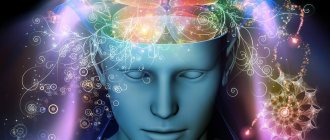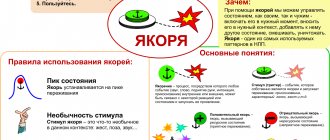Intuition in Science
From the point of view of science, intuition was denied for a long time, considering it some kind of paranormal ability. Only in the middle of the last century, the American sociologist James Staunton decided to conduct research related to the sixth sense. He took as a basis about 250 accidents that occurred at different times on trains and planes. Staunton decided to compare data from flights that ended safely with information from trains and planes that were involved in an accident.
If the outcome of the trip is favorable, the transport is usually 76% full, and in case of disasters - 61%. In approximately 15% of cases, passengers rescheduled their trips or canceled them altogether for some reason. These 15% of people trusted their unconscious feelings, which saved their lives.
Perhaps they felt slightly unwell, or decided to reschedule their trip due to a sudden urgent matter. Intuition manifests itself in different forms. The rest of the people succumbed to a more logical and rational approach, which is why they suffered.
Later, American scientists conducted an experiment with maps. 16 people were given a winning card in advance, for which they gave a good cash prize. Then they were asked to blindly choose one card at a time. It was noted that the person who chose the desired card had a nervous system that worked as usual, while the losers began to worry even at the moment of choice. Thus, the nervous system gave alarm signals in advance.
Predictive models
How did this division of intelligence appear in living beings? Most likely, from the vital need of these creatures for predictions. Any predator needs to be able to accurately predict where it will land as a result of a jump, otherwise it will miss and be left without food.
Akella missed the mark, he can no longer be our leader
The Jungle Book by R. Kipling
The same can be said about his sacrifice. If the object of a predator's hunt can itself predict where the pursuer's jump is directed, then it is quite possible that he will be able, by adjusting his behavior, to escape and stay alive. As a result, we can view each hunt [including] as a competition between versions of the predictive intelligence unit. Whose version predicts better, faster and more accurately is the one who survives.
However, an individual’s intelligence cannot do without just one predictive model for all immediately surrounding predators (or herbivores) if he wants to predict everyone well at once. This means that a set of models is needed, and this in turn requires the correct comparison of each predictive model with the observed phenomenon of the surrounding world. Then the division of individual behavior is also supplemented with cognitive functionality .
Let us also note that the result of the model’s prediction is expressed non-verbally, in the form of a certain feeling of correctness that is difficult to express in words. For example, the correctness of the throw or the correctness of the choice.
What does all this have to do with intuition? The most direct. Let us recall such signs of intuition as non-verbality [in the form of a certain sensation] and a correct forecast of what will happen in the future. Thus, a certain part (if not all) of the manifestations of intuition can be safely attributed to the work of a very archaic, but extremely useful subdivision of the intellect in constructing and selecting predictive models of the world surrounding the individual.
Why doesn't a person use his sixth sense?
What is intuition based on? This feeling is made up of emotion, spirit and logic. It is these components that are the guide along the path of life. In most cases, we do not respond to internal cues. Man is designed in such a way that he constantly doubts, fears, worries, reasons, and this prevents him from hearing himself.
As an example, remember how you wanted to dance or sing, learn to play the guitar, or open your own business. But the thought flashed through your head, “what if it’s a failure,” and you didn’t even try to do anything. In the first case there was intuition, in the second - reason. As a rule, we all choose what is considered reasonable, that is, we refuse to take risks even when we essentially have nothing to lose.
The brain creates a barrier in the mind, trying to protect a person from the unknown and incomprehensible to him. He warns that there may be a negative result, thereby restraining his owner, not giving him the opportunity to try something that he cannot yet understand. And this approach is logical. Intuition, on the contrary, is a desire, a desire for the best, a passion that makes you not stop there and constantly move forward.
There are situations when it is worth giving feelings and sensations a chance, turning off common sense and logic for a while. You just need to do as your inner voice says, trust your body and soul. Despite everything, it is there and is desperately trying to reach the “control center” located in the head.
Individual behavior
Let us consider in more detail the division of intelligence responsible for individual behavior. TEI believes that it is based on many models of the surrounding world, built during the course of an individual’s life. Intelligence builds models to be able to predict what will happen in the future. After all, the ability to react correctly now based on a correct forecast is one of the important characteristics of the degree of development of intelligence.
So, individual behavior is [first of all, but not only] a set of intellectual models of the surrounding world that have the ability to predict.
Here, for example, is a typical model: a ball model that predicts [before throwing] what will happen if an individual throws the ball and where it will land. Thus, any training [including ball throwing] can be considered as making amendments to the model to make it more adequate to reality.
Intelligent models here mean an understanding close to the definition of models in machine learning. Models in machine learning are some kind of black boxes, the principle of which depends on the specific type of model chosen, of which there are dozens today. But they have a common feature - this is a learning mode and a prediction mode. In the training mode, a set of training and test data is supplied as input, and the model looks for some kind of pattern in them. In prediction mode, based on a set of initial data passed to the input, the model is able to predict what will happen as a result, and this set was not necessarily contained in the training set.
But there is a difference: models in machine learning are implemented in digital computers, while models of natural intelligence, built on living neuron cells, can rather be considered analogue.
If we draw parallels with computer technology, we can say that these models are similar to analog computers. We have recently become accustomed to dealing only with digital technology. However, we can remember that it was preceded by analog computers, which now most likely can only be seen in a museum.
Dornier 240 Analog computer https://www.emuseum-tettnang.de/labels/salon2/analogrechner/dornier_do240
Analog computers could perform complex calculations much faster than their digital counterparts, but they were not universal. For each task, for example, to calculate a ballistic trajectory, it was necessary to build its own circuit. And with the increase in the productivity of digital computers, analog ones gave way to them. Those interested can see more details here.
So, to understand the nature of intuition, let's take a closer look at the patterns created by natural intelligence. Since their main function is to make forecasts, for definiteness we will call them predictive .
How does intuition work and its signals, why is it needed?
People who have well-developed intuition can read various signals from their own body and understand whether they made the right decision or not. How does intuition manifest itself? Let me give you a few examples.
Many people report feelings of peace, calm and happiness, even if from a logical point of view the decision does not seem correct
Over time, people become convinced that they did the right thing by trusting their unconscious, rather than being guided solely by the rational.
For example, a person spends a lot of time on a job that he does not like. The office has a good team, a normal salary, but still something is wrong. Guided by common sense, a person continues to work in this place for the sake of money or a career, but every day he begins to hate his job more and more.
Intuition, with the help of an unreasonable feeling of dissatisfaction, tries to say that a person is in the wrong place . And when he nevertheless decides to change his occupation, he will feel relief and calmness.
When you do “your” business, you experience happiness and moral satisfaction. The same applies to the people who surround us. If you really don’t like a person, you feel uncomfortable in his presence for no logical reason, then perhaps this is the voice of intuition that is worth listening to.
With the help of dreams you can also read signs of intuition
When we sleep, our brain rests and digests all the information received and available. It is in a dream that you can find the answer to a question that has been haunting you for a long time. A striking example is Dmitry Mendeleev and his famous table of substances. It was in a dream that the scientist saw how substances should be placed and ordered correctly. Why people dream, as well as many interesting facts about this process can be found in a separate article.
But this does not mean at all that the good fairy magically came to the scientist in a dream and decided everything for him. This means that Mendeleev thought long and hard about the riddle, but in an alert state the brain is oversaturated with various information, it is simply not able to generate the entire flow of thoughts and facts.
In a dream, on the contrary, the unconscious has time to sort out the facts and come up with the right decision. The main thing is to be able to interpret your dreams, because everything is not always as literal as in Mendeleev’s dreams.
Unconsciously we can pay attention to external signs - this is also the work of intuition
For example, the September 11, 2001 terrorist attack on the Twin Towers in New York. Thousands of people worked in those magnificent buildings that were destroyed by the plane crash. A huge number of dead and injured from this terrible disaster.
But there were those who completely accidentally avoided the tragedy:
- someone was late for work due to traffic jams;
- someone was kept at home by a morning row with his wife;
- another dropped his child off at kindergarten and was delayed because of this;
- another person left the office to buy coffee.
People have told so many little things like this that saved their lives. After all, if it weren’t for them, people would most likely die in their offices. It is very important to be able to notice such signs of intuition in time, and not ignore them.
And also the body itself may hint that the plan should not be implemented.
Sometimes people get sick before an important meeting or trip. It could be a cold, poisoning, general malaise or something else.
One successful businessman said that on the eve of an important meeting with investors, he fell ill with a severe ARVI. He had a high fever, cough, and weakness. But he, as a responsible person, decided to travel 500 kilometers to this important meeting anyway.
Having arrived at his destination, the entrepreneur learned that his investors’ plane was delayed indefinitely due to weather conditions, and the meeting would not take place. He wasted his time, nerves and health. The businessman was hospitalized with complications of the disease, but learned to listen more to his own body.
The phenomenon of bias
Probably, many of us have encountered bias in our own experience, both in relation to ourselves personally and have had the opportunity to observe this phenomenon in the relationships of our environment. How can bias be interpreted within the framework of TEI?
This is a false comparison of a [possibly correct] predictive model and an observed phenomenon.
What exactly is bias? When a person [and not only] is assigned [and prescribed] behavior that is not characteristic of him. That is, bias can be considered as a kind of antipode to the phenomenon of correctly working intuition.
An argument can be made in favor of this interpretation that, often, the reasons for a biased attitude are difficult to explain in words, that is, this phenomenon is most likely also expressed non-verbally.
Why does false model selection occur? It can be assumed that due to an effect similar to overtraining of a neural network in machine learning.
So, if intuition is [at a minimum] an adequate choice of a working predictive model, then bias is an inadequate choice of [maybe] a working predictive model [but of a completely different person] and, as a consequence, following completely false predictions of the behavior of this person.
How to develop intuition
Is it possible to develop intuition? In fact, there is no mystical background to this concept. This is an experience that has accumulated over centuries and was passed on by previous generations. Therefore, regularly repeated actions are easily perceived.
Logical chains are not formed by the brain, since the problem is clear and the ways to solve it are known. The information is already displayed in the subconscious and is waiting for time to come out. Like any skill, intuition can and should be developed. Absolutely every person can do this by listening to their own “I”.
Trusting your intuition is a great achievement. But it needs to be developed. Then you will have a unique opportunity to use your sixth sense in practice, to trust your feelings, which will be an excellent help in many life situations.
Scientists say that only 2% of people on the planet have well-developed intuition. But this does not mean that each of us cannot try to develop a sixth sense. Swiss scientist Max Luscher identifies 4 qualities, the development of which will help acquire intuition:
- Self-knowledge, acceptance of your own feelings, respect and self-love - all this will help you get closer to your inner “I”;
- Confidence in yourself, your own strengths and aspirations is a very important component of the development of intuition. You can feel the signals, notice the signs, but ignore them, do not trust yourself. It is important to trust your own feelings even without a logical explanation of the situation;
- Inner satisfaction is a state of calm when intuition and thinking do not cause internal conflict. On the contrary, it is a fusion of thoughts and feelings;
- Inner freedom is complete acceptance of yourself, your feelings, the ability to hear and listen to your body.
Look for signals, signs
First, you need to learn to recognize this feeling. It manifests itself differently for each of us. Some experience a feeling of warmth in the body, others experience flashes in the form of visual images, visions, and others experience vivid dreams.
It could be an unformed thought that quickly flashed through your head, or a guess, lightness, peace. In some cases, this may be an understanding of the truth and confidence in the correctness of one’s actions, contrary to all the laws of nature and the opinions of society.
Science has proven that the subconscious mind stores a lot of information that is inaccessible and unknown to the conscious mind. Therefore, if the same sign appears again and again, you should not ignore it. It is thanks to him that you may become happy, successful, rich and healthy.
Meditate
A procedure useful for everyone living on planet Earth. Meditation, when the dialogue inside you subsides, allows you to switch off, reboot your mind and open the way to feelings and sensations, and be able to think positively.
During the session, a person opens himself to thoughts and feelings that he does not pay any attention to in everyday life. Follow the sensations and understand what you need to do and how to act.
Ask
The wisdom that intuition is trying to impart to you should not become a passive skill or experience.
To get an accurate answer, you need to ask clearly formulated questions. Only in this case will you learn the truth dictated by innate wisdom.
Write down the answer you receive
Don't rely on memory. The subconscious can subtly indicate to you the correctness of actions. The answer he gave is quickly erased from consciousness. Scientists have proven that if you don't capture an intuitive idea within 37 seconds, it may never happen again. How to improve memory is briefly and clearly discussed in a separate article.
Keep your diary. This is one of the best ways to talk to your intuition and receive its gifts. It is enough to devote just ten minutes a day, and the results will exceed your expectations. After a short time, you will see positive changes and inner growth in yourself.
Act quickly
The winner is the one who acts without delay. Intuition does just that. Instant response to information leads to the opening of a connecting channel between the mind and the subconscious.
Consequently, the information is received more accurately, and it becomes much easier to hear and respond to it.
Trust yourself
Learn to trust your gut instinct, and the results will follow. Thanks to this, you will have the opportunity to solve problems that arise, make plans, and make the right decisions much faster.
It is important to realize that intuition and you are one. The tool that leads to success and well-being.
Live in the moment
The past is already over, the future has not yet arrived. Living life now, focusing your attention and energy on the present is the best thing you can do. Worrying about what no longer exists or about what may not exist means clogging your mind with unnecessary information, experiencing pain, experiences that can significantly harm your nervous system, health, negatively affect relationships with loved ones and performance.
Try to get all unnecessary thoughts out of your head and focus on what is happening. This will bring you happiness, satisfaction and, accordingly, will allow you to develop your inner sense.
Focus on the emotions and thoughts you are experiencing now and stop worrying about what you cannot change. This is another reason for a bad mood and distortion of the perception of the world.
“If you are depressed, you are living in the past. If you worry, you are living in the future. If you are in the world, you live in the present." Lao Tzu.
Architecture of Intelligence
To understand what the nature of intuition is within the framework of the theory of the evolution of intelligence, let us first consider the historically established architecture of human intelligence postulated by TEI.
Since we can judge the intelligence of living beings mainly by its manifestations, and the manifestations of intelligence themselves in their totality give rise to behavior, it would be quite appropriate to divide the manifestations of intelligence according to the various sources of an individual’s behavior. TEI proposes to divide intelligence into 5 large sections, fundamentally different in their functionality.
This:
- instinctive behavior
Historically, the most ancient division of human intelligence is responsible for following the unchanging strategic goals of an individual’s life, strictly determined by his biological species.
- reflex behavior
The division of intelligence responsible for typical responses. It is very efficient, but not very intellectual. Its typical manifestation is accompanied by the motto: “First we did it, then we thought.” In situations where you need to react quickly and have no time to think, it comes in handy, for example, when you need to instantly pull your hand away from the fire. It is not innate, like instinctive, but acquired during the life of an individual.
- individual behavior
This division of intelligence is responsible for a set of typical reactions and habits that make the bearer of intelligence recognizable in addition to his appearance.
- communicative behavior
The division of intelligence responsible for how and in what manner an individual communicates in a group. For example, when you need to determine who will be in charge in the group and whether this is fair, how to coordinate your actions with other members of the group, how to warn them about danger or how not to pass the group by lucrative perks, and much more related to relationships in the group.
- reasonable behavior
This division is associated with abstract logical thinking. What we are actually accustomed to traditionally calling intelligence.
However, if intelligence is only a product of abstract logical thinking, then what about the other divisions? This is where TEI proposes to expand the definition of intelligence so that it covers all the divisions mentioned above. You can look at this in more detail in the article “The Evolution of Intelligence: The Beginning.”
Let us immediately note that the idea of dividing intelligence according to the sources of an individual’s behavior is not new, you can read about it, for example, here, the only difference is in the number of sources entered.
History of the concept
The first use of the word intuition was found in a text in the late 15th century. Until the 17th century, intuition meant "mental contemplation"; “the act of contemplating, examining, or testing”; “a glance or examination of something.” All of these values are now obsolete.
In the 17th century, scholastic philosophers began to use the word in its modern meaning, as in the following context: "spiritual perception or direct knowledge attributed to angelic and spiritual beings with whom vision and knowledge are identical."
More common ways to use "intuition" are:
- Intuition as a special property of genius.
- Intuition as a designation for the mysterious “sixth sense”.
- An unjustified belief or guess.
conclusions
Growing evidence of the reality of intuition and other unusual phenomena is being noticed by both businessmen and governments.
Here are some recent events:
- SONY Corporation conducts research into alternative medicine, spoon bending, telepathy and other forms of intuition.
- Dr. John Michalaski, author of Practical ESP, has shown that leaders' success rates are proportional to their intuition, suggesting that intuition is an important factor in business success.
- In November 1995, the CIA confirmed that it had been using the services of psychics for espionage operations for the previous 20 years.
- In November 1998, the US Patent Office issued the first patent for the psi effect.
- In July 1993, Mutual of Omaha, the state's largest provider of personal insurance, announced benefits for meditation exercises aimed at curing heart disease.
- In 1997, the Federal Government's National Institute of Health officially approved acupuncture.
- In April 2004, researchers at the University of Denver found that Parkinson's disease patients who had fake surgery (placebo) reported an improvement in their quality of life after 12 months. One woman even reported returning to full physical activity after being inactive for many years before surgery.
- The placebo effect for Parkinson's disease has been observed before, but not as strong. Obviously, in the case of this disease, the connection between mind and body is very strong, and it is hoped that a way can be found to use this for the benefit of the patient.
Bottom line
Let's summarize. Intuition - what is it? This is a subconscious decision that is made based on your experience. How to develop intuition? Gain more experience and listen to your inner voice.
Once you stop treating intuition as something otherworldly, you can easily develop and strengthen it. I think there is a lot more interesting information about intuition, but my brief excursion has already gone on for a long time.
I’ve come across a lot of exercises online to develop intuition, in which you need to guess where a card is or which elevator will arrive faster. As for me, this has nothing to do with intuition, except perhaps by chance. Therefore, we did not consider such training.
Write your thoughts about intuition and its development in the comments, it will be interesting to know your opinion. You can also subscribe to blog updates so as not to try to predict the release of new articles intuitively.
Until we meet again, your Alexander Gorokhov
Cautions
When it comes to faith in intuition, there are four different categories of people. Which one do you belong to?
They don't believe
The first category is people who do not believe in intuition. They simply refuse to believe in phenomena that cannot be explained using Newtonian physics. And no matter how much scientific evidence there is, they cannot be convinced otherwise.
Skeptics
The second category is skeptics. These are people who don't believe in intuition because it doesn't fit into their scientific knowledge. However, skeptics are open-minded people, and if presented with convincing evidence, they will be willing to accept the existence of intuition. A skeptic will not be convinced by reviews, but the results of scientific research will make him think seriously.
Believe carefully
The third category of people believes in intuition cautiously. They believe that intuition exists, but they don't believe everything they read about it. They require scientific evidence or testimonials*. People in this category would find this training course interesting because it is backed by scientific evidence and links to authoritative sources.
They believe 100%
The fourth category are people who strongly believe in intuition and tend to also believe everything they read or hear about it. If you are one of them, we must warn you. Not everyone who claims to have intuition is good enough to charge you money.
Almost all telephone psychics are charlatans. And only a few of the street psychics are worthy of payment for their services. When it comes to such a little-known phenomenon as intuition, it is better to believe cautiously or be a skeptic than to believe 100%.










